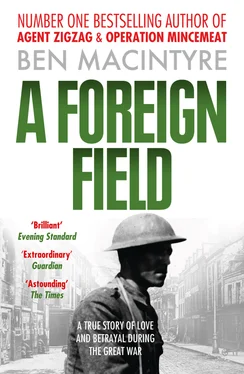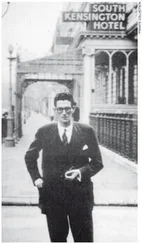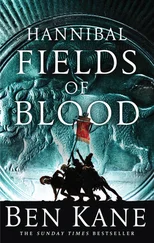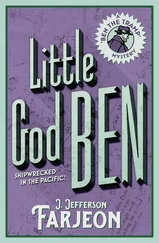The German dragoons spurred their horses. Hearing the clatter of hooves and turning to see the German patrol less than half a mile behind them, the Englishmen ran. Through the town square, past the town hall and the butcher’s, they ducked right, out into the open again, sprinting towards a dense copse some 200 yards from the edge of the village. Seconds later the German dragoons entered Villeret at a gallop, guns drawn. Digby was younger than Sligo and a keen rugby player. The Welshman may also have been more seriously wounded, for Digby reached the woods well ahead of his companion, and plunged into the thick undergrowth, just as the leading horseman caught up with Sligo, and shot him dead.
The wood was impenetrable on horseback and night was closing in. The German dragoons paused briefly at the edge of the copse to peer into the vegetation before they ‘swung around in the direction they had come’, and trotted away. As one villager later remarked: ‘It was the last pointed helmet we would see for some time.’ When it was quite dark, a handful of village men warily emerged from their homes and retrieved the body of the dead soldier from beside the place they called Les Peupliers de la Haute-Bruyère, the poplars on the high heath. Parfait Marié filled out his first death certificate, copying the Welshman’s strange-sounding name from his identity tags in immaculate curling script. That night, John Archibald Sligo was buried in an unmarked grave, the first foreign resident of Villeret’s tiny graveyard.
Robert Digby was not the only fugitive in the woods around Villeret that night. Over in the forest below the Château de Grand Priel, where François Theillier was wont to carry out his daily depredations on the local wildlife, Arthur-Daniel Bastien, a young maréchal des logis, or sergeant in the French cavalry, perched glumly on a log, still wearing his magnificent crested helmet with horsehair plume, cuirasse and spurs, ruminating on why he had been ordered into a twentieth-century battle with equipment and tactics designed for the Napoleonic era. Bastien had been trained, as he put it, in ‘hand-to-hand combat with a sabre handled at full gallop, a long lance for charging the enemy, a carbine with three cartridges and, for non-commissioned officers, a revolver’. He believed he had been ‘sent to war with methods practically the same as those employed under the Second Empire’, and, like every French cavalryman ‘schooled in the arts of war on horseback’, he had considered it his patriotic duty to charge the German army with drawn sabre at the first opportunity and drive it out of France and Belgium. Only the first part of Bastien’s plan had come to pass. Unlike the French, German cavalry units were usually accompanied by infantry with machine guns, and though the breastplate looked wonderful on parade, it was visible from miles away and it was not bullet-proof.
On 27 August, Bastien’s regiment, the 9th Dragoons, part of General Sordet’s cavalry corps, found itself at Péronne, about ten miles due west of Villeret on what would soon be the line of the Western Front, attempting to protect the left flank of the British force against the advancing Germans, but becoming utterly disorientated in the process. ‘With the Germans on our heels, and constant contact between our patrols and those of the enemy, to physical exhaustion was added the permanent nervous tension of knowing the enemy was right behind us,’ Bastien recalled. Reaching the crest of a hill east of Péronne, Bastien and his troop realised that they had strayed into the very midst of the enemy: the infantry division directly ahead was composed not of retreating British soldiers, as they had blithely assumed, but of advancing Germans. Years of training obscured any vestige of common sense, and the commanding officer, one Captain de la Baume, did not hesitate. The cavalry troop must fight its way back to the rest of the French army, he ordered, and ‘charge, without hesitation, anyone who got in the way’.
‘The dragoons made a beautiful sight as we advanced across the plain, helmets on, plumes blowing in the breeze, blue-black jackets and red trousers, arms glinting in the sun.’ The German machine gunners had plenty of time to line up their sights. ‘The lieutenant ordered the charge. Lances were lowered, the riders leaned forward and spurred into full gallop.’ Bastien’s troop broke through eight successive lines of German infantry, pausing before each fresh charge.
Here was heroism, but here, too, was mounted suicide in full dress costume. ‘The infantry scattered before us every time, but their fire decimated the squadron and the bullets whistled around my ears,’ wrote Bastien, who was positioned at the extreme right of the rapidly thinning line of horsemen. Suddenly, Bastien found himself galloping down a steep incline which brought him on to a road. No more than twenty feet away was a stationary German convoy. Bastien lowered his lance and charged once again. ‘The convoy of soldiers was kneeling and firing, and I could hear the bullets wailing around me. Thanks to God and the speed of my mount, neither I nor my horse was hit. No German cavalryman dared to confront me, and the last bullets came from behind me. The countryside ahead was empty, but the rest of the squadron had gone.’
Arthur-Daniel Bastien was one of the few survivors of one of the last great cavalry charges in history. In less than an hour, the Ist Squadron of the 9th Dragoons had been almost obliterated.
Still looking for someone to skewer, Bastien galloped on for a mile, his ‘nerves at full stretch’. Then, when the adrenaline had subsided, the Frenchman hid in a small wood, which happened to belong to François Theillier, and wondered what to do next. ‘Having thanked Providence, I tied up my sweat-soaked mount and checked I was not being followed. The wood seemed to be empty of people, with a château on one side, and on the other a forester’s cottage which appeared to be unoccupied.’ Bastien broke in through a window, took what food he could find, and left an apologetic note to the owner for this ‘forced loan’.
‘As night fell, I stretched out in the ferns, beside my horse. My sleep was agitated, the night was cold, and I woke up time and again, my teeth chattering. The next morning I tried to analyse the situation calmly.’ Bastien concluded that his best option was to head south and try to catch up with the retreating French or British armies. ‘The Germans don’t take isolated prisoners,’ he reflected, wrongly. ‘They execute, on the spot, any straggling soldiers they catch … I decided to keep my weapons and fight to the death, if necessary.’ Returning to the forester’s house, he raided the rabbit hutches behind the building and dined on ‘raw rabbit for the first time’, declaring it to be ‘quite acceptable for a starving man’. As Bastien chewed his lapin tartare, he spotted ‘three new occupants coming into the wood, who turned out to be three British infantrymen, utterly disorientated’.
Willie Thorpe of the King’s Own Lancaster Regiment had by now linked up with Donohoe and Martin of the Royal Irish Fusiliers, and all three were mortally scared, and famished. As befits a French cavalry officer, Bastien, who spoke a little English, did not forget his manners and courteously offered to share his unappetising meal: ‘I gave them a gift of the remains of the rabbit, and pointed out the general direction of the Allied troops.’ The Frenchman then bade farewell to the British soldiers: ‘I remounted, lance in hand and revolver in pocket, my sabre lying alongside my saddle, and set out in a south-westerly direction.’
Four months later, Bastien rejoined the French army, after disguising himself as a civilian, walking over a hundred miles to his home town on the Belgian border, and finally returning to unoccupied France via Holland, Folkestone and Calais. ‘I will never forget those months in 1914, the last great days of the French cavalry,’ he wrote in his memoirs. Fifty years later, Arthur-Daniel Bastien still wondered about the fate of the soldiers he had met in the woods of Château de Grand Priel by the village of Villeret.
Читать дальше












